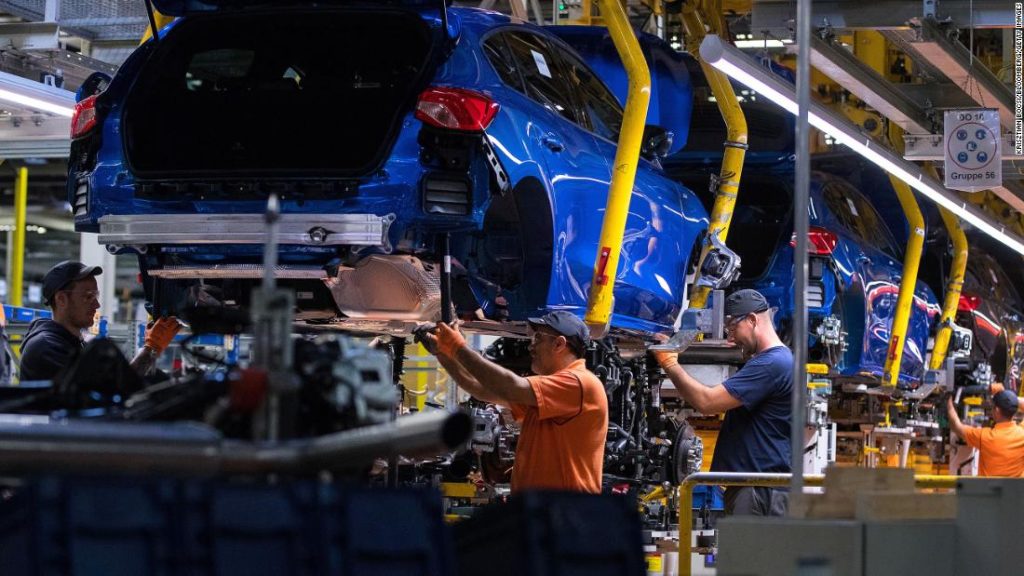“We are closely monitoring the situation and adjusting production schedules to minimize the effect on our employees, suppliers, customers and dealers across Europe,” said a Ford spokesman. “At this time, we do not anticipate any similar actions at our other European facilities.”
Leading semiconductor manufacturers reassigned capacity from automakers last year after the pandemic slashed car sales, instead shipping chips to companies that produce smartphones, gaming systems and other tech gadgets that remained in high demand. Supplies are still tight, and carmakers are struggling to secure the chips they need.
“Light vehicle manufacturers are finding increased disruption to the supply of systems using semiconductors in the first quarter,” Mark Fulthorpe, executive director for the automotive team at IHS Markit, said recently in a research note. “The situation is highly fluid.”
The disruption comes at a crucial time for carmakers, which suffered a collapse in sales in the early months of the pandemic, yet remain under intense pressure from global regulators to invest heavily in electric cars. Research firm Bernstein estimates global vehicle sales will grow 9% in 2021, following an expected 15% decline last year — but the chip shortage is putting the recovery at risk.
According to UBS analysts, the world’s largest carmaker could lose out on production of 100,000 units in the first three months of the year, or roughly 4% of global quarterly output, as a result of the components shortages.
“We are doing everything in our power to minimize lost production and to ensure that normal deliveries to customers can be resumed as rapidly as possible,” Volkswagen Group purchasing manager Murat Aksel said in a statement last month.
Audi said Monday that it has furloughed 10,000 workers because of the chip shortage, with production and shift patterns affected at plants in Germany and Mexico. Production of the luxury brand’s A4 sedan and A5 cabriolet has been provisionally halted in Neckarsulm, Germany, through January 29.
“We are currently looking at a range of countermeasures and alternatives designed to mitigate the impact of the supply bottleneck and, in turn, minimize the number of vehicles affected,” a spokesperson said. “Any improvement largely depends on the semiconductor industry.”
Fiat Chrysler said last week that it would delay the restart of production following a scheduled break at its Toluca, Mexico, plant, which builds the Jeep Compass. It has also scheduled downtime at its Canadian plant in Ontario, which produces the Chrysler 300, Dodge Charger and Dodge Challenger.
Japanese carmakers are also hurting. Toyota said it was forced to temporarily halt production at a plant in Guangzhou, China, on January 12, and it’s cutting production at a Texas factory that makes Tundra pickup trucks. Nissan and Honda have both said they’re “adjusting” production in response to the shortage.
South Korea’s Hyundai said in a statement on Monday that it’s “making effort to optimize supply of parts to ensure stable production at each production hub.”
Chinese factories may be worst affected
Production levels in Europe, North America, Japan and India are expected to be hit this quarter, according to IHS. But the biggest problem could be in China.
“At this stage, with varying levels of visibility across the supply chain, the biggest volume disruption is noted in mainland China where, based on available information, the risk could be 250,000 units in the first quarter,” said Fulthorpe.
Taiwan Semiconductor Manufacturing Company (TSMC), a major supplier of chips, said last week that easing the shortage is its “top priority.” “We are working closely with our automotive customers to resolve the capacity support issues,” CEO C. C. Wei said at an investor conference on Thursday.
— Jake Kwon, Junko Ogura, Jill Disis and CNN’s Beijing bureau contributed to this article.
You may also like
-
UK coronavirus variant has been reported in 86 countries, WHO says
-
NASA technology can help save whale sharks says Australian marine biologist and ECOCEAN founder, Brad Norman
-
California Twentynine Palms: Explosives are missing from the nation’s largest Marine Corps base and an investigation is underway
-
Trump unhappy with his impeachment attorney’s performance, sources say
-
Lunar New Year 2021: Ushering in the Year of the Ox

